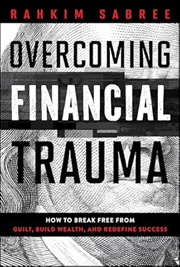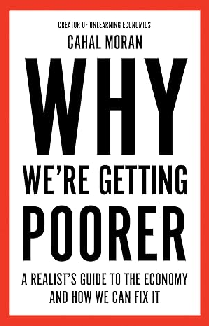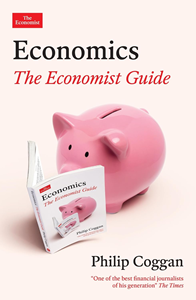 ● Company Men: The Invention of Shareholder Value and the Splintering of the American Economy
● Company Men: The Invention of Shareholder Value and the Splintering of the American Economy
Sean Delehanty
Summary via publisher (Chicago U. Press)
How an esoteric economic theory—and its most devout believers—changed the world forever. In the modern economy, stock price is king. The value of a corporation is measured in how it enriches its shareholders, even when doing so subtracts from long-term growth or social good. Greed, in the last half-century of corporate practice, has become very good. Company Men is a sweeping intellectual history of how shareholder value rose from the lesser-known edges of academic theory to the vanguard of corporate practice.
 ● Overcoming Financial Trauma: How to Break Free from Guilt, Build Wealth, and Redefine Success
● Overcoming Financial Trauma: How to Break Free from Guilt, Build Wealth, and Redefine Success
Rahkim Sabree
Summary via publisher (Wiley)
In Overcoming Financial Trauma: How to Break Free from Guilt, Build Wealth, and Redefine Success, award-winning financial therapist Rahkim Sabree delivers a deeply honest and supportive discussion of how to get to the root of your financial trauma. The author helps you identify triggers for nervous system dysregulation that result in financial anxiety and financial stress, demonstrating the importance of financial psychology and behavioral finance, as well as financial therapy as an effective solution.
 ● Why We’re Getting Poorer: An insider’s guide to our economy, from the bestelling author and creator of Unlearning
● Why We’re Getting Poorer: An insider’s guide to our economy, from the bestelling author and creator of Unlearning
Cahal Moran
Summary via publisher (HarperCollins)
Why We’re Getting Poorer delves into the key topics in economics – money, globalisation, inequality, climate change and growth – showing that what we think we know about these things is wrong, and teaching us what we really need to know. Deciphering the jargon and complexity of economic thinking, with examples ranging from the Simpsons to the German football league to The Inbetweeners, Cahal Moran shows us why our economy set us up to fail, and offers suggestions for how we can make positive changes.
 ● Economics: The Economist Guide Economics
● Economics: The Economist Guide Economics
Philip Coggan
Summary via The Economist
A comprehensive guide to how the economy actually works for the general reader. Chapters cover fiscal policy, monetary policy, trade and productivity. The book includes an A-Z of economic terms, which will help anyone baffled by economists’ fondness for jargon.
Please note that the links to books above are affiliate links with Amazon.com and James Picerno (a.k.a. The Capital Spectator) earns money if you buy one of the titles listed. Also note that you will not pay extra for a book even though it generates revenue for The Capital Spectator. By purchasing books through this site, you provide support for The Capital Spectator’s free content. Thank you!